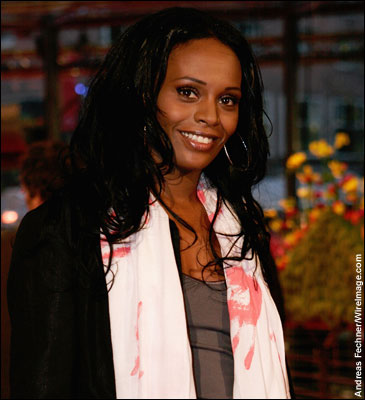Dealing with Your Past
 Saturday, September 12, 2009 at 01:32PM
Saturday, September 12, 2009 at 01:32PM (This begins a series about you—-your past, presest, future, your salvation, your repentance, etc. It will become a set of booklets that will hopefully help people understand and process the events and situatiions in their lives. The first in the series, A Short Book about You, has been written to use as a gift to visitors to an Apostolic church. It is in publishing at this point and will be available to purchase online.)
Your Past (Part One)
 1
1
He called himself John Doe. Seattle authorities said he emerged from sleeping under a tree in Discovery Park and flagged down a Metro bus for help. No official diagnosis was immediately given, but the initial signs were that he suffered from an acute form of amnesia. An hour after the police posted his picture on their website, an Internet reader recognized him as an English teacher he knew in China, Edward Lighthart. John Doe had no memory of that name or position. He remembered nothing of his extensive educational background, his travels which took him to Europe, Asia and Australia or his family and close friends. At the time he went to the police, he was totally detached from his personal history. It was as though nothing had ever happened to him. He was a man with no past.
 On the opposite end of the spectrum, German pop star, Senait Mehari, cannot get away from her past. When she was a schoolgirl in Eritrea, in sub-Saharan Africa, she remembers being terrified by the drone of planes overhead. Objects started dropping on the ground, soon followed by huge explosions.
On the opposite end of the spectrum, German pop star, Senait Mehari, cannot get away from her past. When she was a schoolgirl in Eritrea, in sub-Saharan Africa, she remembers being terrified by the drone of planes overhead. Objects started dropping on the ground, soon followed by huge explosions.
“Bleeding children staggered out from the smoke,” she recalls, “and screaming mothers ran towards them. I ran over and was greeted by a picture of desolation: blackened children, broken bodies. And dolls. There were dolls lying everywhere. One of the children who had just arrived picked one up and was engulfed in a fiery explosion. She fell to the floor in a fireball. We stood there transfixed with horror. The dolls were filled with explosives; they had been specially constructed and scattered to maim and kill children.”
Years later, her past continues to traumatize her. Following the bombing, the revolutionary army that exploited orphans like Senait picked her up and drafted her into their cause. For the next three years as a child soldier, she experienced war first hand. She never killed anyone, but she saw two of her little friends shot down. She was forced to bury them along with countless corpses of other soldiers. Rescued by an uncle and sent to Germany, she now campaigns against the use of child soldiers, based on her own tragic childhood. Mehari is a woman with a past—a past she prays she could forget.
Senait Mehari lives in all of us. We may wish that the illusory figure of John Doe would show up to disconnect us from our past, but he never does. We not only remember, many of us are enslaved by our memories. Our life’s experiences define us and dictate our state of mind to us. There is no delete key.
2
You Are Your Past
Your life consists of the totality of events you your have experienced from the moment of your birth to the present. Out of this myriad of experiences come impressions, beliefs, opinions and perspectives that you call as your identity. Erase this and you would have no frame of reference or meaning in life; you would be little more than a functioning robot. Your past tells more than who you were yesterday. It tells you who you are today and likely portends where you are going tomorrow. You have heard the catchy phrase “today is the first day of the rest of your life.” For many people, that first day of the rest of their lives looks too much like the last day of their past life. Today is only the next day of the life that they have been living.
If you have a disturbing past that reaches into your present and casts a dark shadow over your future, you cannot ignore it. It must be addressed. This decision is the mountain that rises before you as a huge, insurmountable barrier. It’s like perching on a second story window ledge of a house on fire. The heat grows in intensity, forcing you to do something. If you stay where you are, the flames will engulf you; if you jump, you risk losing your life in the fall. The first option means certain death; the alternative is your only hope for survival. You have to jump.
You may have been at this place before, but you didn’t have the strength, the know-how, the motivation or the courage to confront your reality. You may feel so overwhelmed by your past that you have resigned yourself to it. The handcuffs and leg chains of the past resist every attempt to escape, regardless of how desperate you are to be free. It is much easier to identify with a known yesterday than an unknown tomorrow.
Your past is made up of many things. Some of the more common manifestations of a troubled past consist of the following components:
- Toxic relationships. A toxic relationship is an evil bond between you and another person(s) but you cannot escape from it.
- Devastating experiences. Devastating experiences may be the death of a loved one, a debilitating injury or disease, a huge financial loss, or a prison sentence.
- Unwise commitments and contracts. Unwise commitments and contracts are agreements into which you entered and now realize that they are wrong but you cannot break them.
- Destructive habits. Destructive habits are behaviors you have developed that now have become second nature to you.
- Addictions. Addictions are dependencies on substances you have formed, such as alcohol, tobacco or drugs, and now they have physiological or psychological hold on you.
- Integrated mindsets. Integrated mindsets are opinions you have grown to believe about yourself and you have internalized and adopted them as your character.
This is not a complete list, but it covers enough ground to get you started. If you can identify with one or more of these conditions, you must stop, turn around, look at them head-on and boldly confront them. It may be extremely difficult, but you must strip away the emotion and hurt from each memory and look at them objectively. Do not be afraid of what you see. Fear will keep you from moving forward. Find out what makes the elements of your past so hurtful and decide that you can and will do something about them.
3
The good things about your past.
Just before you look into all the garbage of your past life, remind yourself of the good things that have happened to you or that you have to your credit. Did you have someone in your life that loved you and would do anything for you? This person could have been a mother, a father, a sister or a brother; maybe a grandparent or an aunt or uncle. Reflect on the good feelings and emotions you have when you think of this person. This is important for several reasons:
- This person(s) is as much a part of your past as are the negative influences. If you focus only on the negatives, you are cheating yourself out of the positives.
- You need the good memories to counteract the bad ones. When you get overwhelmed by bad memories, you become unbalanced in your perspective of life. It is easy to slip into a mindset that tells you that nothing good has ever happened to you; no one cares about you; you are a total disaster. Some people talk about the power of positive thinking. They are right. The other side of the coin, however, is just as powerful. If you become convinced that you are a bad, unwanted or rejected person, your thoughts can generate feelings that are extremely powerful.
- You can draw strength from the good parts of your past. Anyone who loved you and invested his or her time, energy and money into you gave you strength that you have never really used. Anything good that you accomplished has not vanished. It stands as a testimony to positive abilities and beliefs that remain a part of your life. Emotional hopelessness blinds you to good and positive things. A false sense of despair often grows out of a failure to recognize positive values.
- You can reconstruct a positive future from the good building blocks in your past. You are about to build a future that will be much more rewarding to you than your past has been. What will your future look like? How can you believe in it? The good building blocks that you can identify from your past provide a template for your future. The joy, the hope, the peace and the love that others had when they were a part of your past gave you the look and feel of your future. Stop telling yourself that you don’t know how to be happy or that you don’t know how to love. You do know how. The problem is that you have suppressed these good memories so long that they seem like fairy tales to you. It is time to confirm that they are real and that they can be renewed in your present and future.

Reader Comments